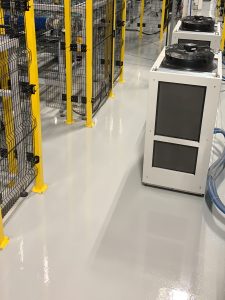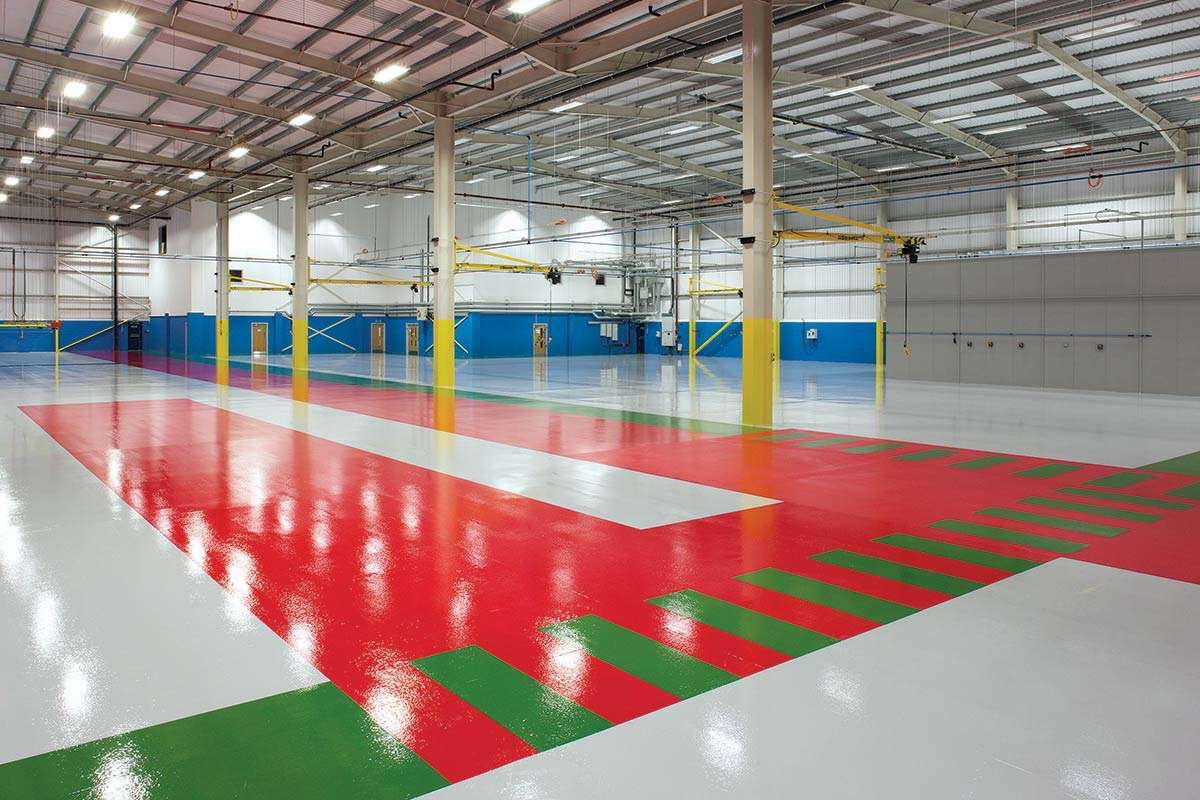
The benefit of Epoxy floor coating for industrial Space
Industrial epoxy flooring offers numerous benefits. It is highly durable, resistant to chemicals, easy to clean, and provides a seamless and attractive surface for industrial environments. It enhances safety by offering slip-resistant options and can be customized to meet specific needs.
Is industrial epoxy floor coating good to use for residential garage flooring?
Yes, it is possible to use industrial-grade epoxy floor coating for residential garage flooring. Epoxy coatings are known for their durability and resistance, making them suitable for high-traffic areas like garages. Products must be approved for residential applications.
100% solid epoxy or solvent-based
Industrial floor coatings can be either 100% solid epoxy or solvent-based. Each type has its advantages and considerations for different applications. The choice between the two depends on the specific requirements of the project and the conditions the coating will be exposed to.
The main difference between 100% solid and solvent-based epoxy is their composition and application. 100% solid epoxy coatings contain no solvents and are composed of 100% solid materials. On the other hand, solvent-based epoxies contain solvents, which are used as carriers for the epoxy resins.

Types of industrial floor coatings and their uses
There are several types of industrial epoxy flooring, each designed for specific purposes and conditions. Understanding each type can help in making decisions for various industrial environments.
One common type of industrial epoxy flooring is the self-levelling epoxy floor, known for its smooth and seamless finish. This type is particularly suitable for areas with high foot traffic, such as commercial spaces and retail environments. Its ability to create an even surface makes it an ideal choice for locations where an aesthetically pleasing look is desired.
Another type is the mortar epoxy floor, specifically engineered to withstand the heavy demands of industrial settings, such as factories and warehouses. This durable flooring provides excellent resistance to impact, abrasion, and chemical exposure, making it well-suited for environments with heavy machinery and equipment.
Gravelled epoxy floors offer a textured surface that provides enhanced slip resistance, making them a popular choice for areas where spills are common. The gravel additives in this type of flooring create a surface that is difficult to slip on, enhancing safety in industrial and commercial spaces.
Additionally, anti-static epoxy floors are specifically designed to control static electricity in environments where electrostatic discharge can cause damage to sensitive equipment or products. This makes them essential in facilities where electronics are manufactured, laboratories, and other spaces sensitive to static electricity.
Understanding the distinct features and benefits of each type of industrial epoxy flooring is crucial to selecting the most suitable option for a specific industrial setting. By considering factors such as foot traffic, environmental conditions, and safety requirements, businesses can make well-informed choices to ensure the durability, safety, and functionality of their industrial flooring.
For industrial settings, there are several types of epoxy flooring to consider. These include self-levelling epoxy floors, mortar epoxy floors, gravelled epoxy floors, anti-static epoxy floors, and vapour barrier epoxy floors. Each type offers unique properties and advantages, catering to different industrial needs and environments.
FAQs
Epoxy floor coatings for industrial manufacturing facilities
Every manufacturing facility needs their specific industrial floor coating, that’s where we come in and get it done right the first time. Epoxy flooring Toronto

Leave a Reply